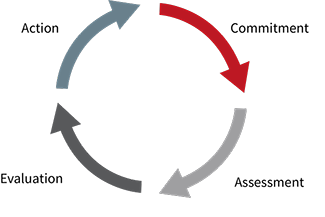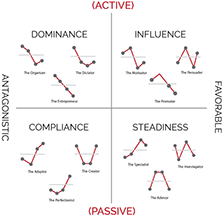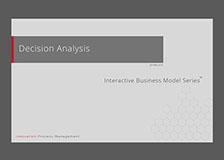Glossary
Logout
©Copyright Arcturus 2022, All Rights Reserved.
7
Terms & Conditions
|
|
|
|
Security & Privacy
Contact
PERSONALITY PROFILE
Individual and Team - Personality Profiling...
Personality is the essential individual character of a person. Personality is who and what we are without the labels of name, number and status that give us a social identity. We are all born with a distinctive unique personality that is gradually overlaid as we get older with what are called personality traits.
There are more than 4,000 traits that characterise the attitudes and behaviours from which the personality of every human being is drawn.
Traits include such terms as reserved, impatient, warm, friendly, easy-going, insensitive, suspicious and compulsive.
Personality traits are the psychological mechanisms by which we respond to the world around us. Some are defensive and some competitive. Some are inborn and some acquired.
We are born with natural personality just as we are born with natural talent and creativity. But we acquire personality traits as a result of our circumstances at birth and subsequent life experiences, many of which reduce our psychological growth and competitive performance. It is also true that we can make a conscious effort to develop and improve those traits that will be of most help to us in work and in our relationships.
Every living creature is born with natural defensive and competitive characteristics that enable it to survive and grow. Human beings are especially gifted in that we have three natural characteristics that have given us a competitive advantage over all other species. These are what we might call the three potentials for growth. They are:-
Talent – Creativity – Personality
When fully developed, these characteristics for growth give us a distinct competitive advantage – which is their true function. This exercise is designed to help us develop our personality potential for improving competitive performance.
Research into the attitudes, motivations and creative achievements of highly successful people shows there are certain key personality traits that increase creativity.
For example, key traits are commitment, perseverance and diligence. Without these attributes it will not be possible to follow the method we recommend to develop our creativity. Traits such as these can be developed by anyone who applies them. In other words, we need commitment, perseverance and diligence to develop the personality traits of commitment, perseverance and diligence!
We call this method a ‘Cycle of continuous improvement’ because it is self-perpetuating.
|The Cycle of Continuous Improvement
The cycle of continuous improvement is a personal life style and a way of working
with others that is rewarding, satisfying, enjoyable and effective.

If you make a commitment to the Cycle and make it work for you as a process of continuous self-improvement and development, it will help create around you an enjoyable living and working atmosphere. And if we enjoy life and work, then we work more effectively and enjoy better relationships. If we are more effective, we get better results and gain more satisfaction…. and so on in a Cycle of improving competitive performance.
To create the cycle requires a measurement against a standard. To provide a standard we have listed a “menu” of thirty-five traits (not in order of importance). The thirty-five traits have additional supportive traits that serve to further define the headline traits, alongside which is a matching set of negative traits.
By scoring either positive or negative against each set of traits in the manner described, a Personality Profile is produced that acts as an initial benchmark standard.
The four steps to complete one cycle are:
- make the commitment to complete at least one Cycle;
- complete this assessment of your personality traits as honestly and objectively as you can;
- review the results of the Assessment, consider the strengths and weaknesses it reveals and then decide what action you need to take to modify the weaknesses and build on the strengths to improve your Personality Profile;
- evaluate your progress after a suitable period of time, say one or two months, by carrying out another Assessment.
This exercise will give you the opportunity to evaluate your own Personal Profile and see how it can be improved to suit your own needs, relationships and work situation.
The purpose of creativity is to “innovate change” in thinking, in methods or in the world around us. Creativity creates new opportunities. To make changes, we need others to help, support or contribute in some way. For this, we need to have good relationships with other people. Personality is either a positive help or a negative disadvantage. An important part of the creative cycle of improvement therefore is the way our personality affects our relationships.
An effective creative person is one whose personality is both creative and attractive.
To prepare a creative Personality Profile we have selected the kinds of traits that will encourage creativity and at the same time improve relationships skills.
The list of traits is not exhaustive and different kinds of creativity such as artistic –v- scientific may require different attributes, so do not expect to score all positive on the Profile!
|How to profile your personality
Personality plays a key role in determining the quality of the living and working atmosphere.
The personality profile is a personal assessment of the effect that personality traits have upon attitudes and motivation.
Personality traits can be positively or negatively motivating – for the person concerned and for others with whom she or he is living or working.
A person, who feels good, is alert and outgoing will create a better atmosphere than when she or he is feeling tired, off-colour or miserable. This is when we need to be tolerant, supportive and caring for others in order to maintain a good atmosphere.
People with positively motivating attitudes and personality traits generate an enjoyable, dynamic, creative living and working atmosphere.
We therefore measure personality traits in terms of their negative or positive motivating effect – on the person who is scoring the Profile.
Scores reflect personal, subjective thoughts and feelings; “this is what I think, this is how I feel, this is the effect that these traits have upon me”.
Complete the Assessment by scoring the positive or negative side of the traits that most accurately describes your own personality style as it normally is.
By scoring each of the traits as honestly as you can you will be carrying out an audit of your personality style, which will identify its strengths and weaknesses.
To produce a personality profile, score five points for each trait, blanking out five boxes of the score sheet as you do so. The five points could be all positive, or all negative, 3 positive 2 negative, 1 positive 4 negative or any combination adding to five.
The scoring method will give you an immediate visual Profile that can be quickly compared with other Assessments that you have done previously – or with another person’s Profile.
The method therefore provides you with a monitor for your own progress on the Cycle and/or as a comparison with other Profiles of friends, family or colleagues at work.
Dis-Values
Values

1n Apathetic
Without ambition. Indifferent. Lack of enthusiasm. Lethargic and de-motivated.
1p Aspiring
To look forward to achievement. Ambitious. High ideals, hopes and dreams for the future.
2n Cynical
Distrustful and scornful of others. Sarcastic and pessimistic.
2p Caring
Considerate of others’ welfare and feelings. Attentive and protective.

3n Miserable
Wet blanket and miserable, spoils the fun for others. Kill-joy, gloomy and pessimistic.
3p Cheerful
Bright, light-hearted and pleasant. Optimistic. Amusing and fun-loving. Sees the bright side of situations. Good humoured.

4n Indifferent
Uninterested, uncaring and without involvement. Couldn’t care less attitude.
4p Committed
Dedication to an idea or cause. To bind one’s self by promises. Wholehearted support

5n Different
Timid, shy, mistrusting. Lacking in confidence and self-worth.
5p Confident
To be sure of one’s self. Self-assurance. Strong belief in the correctedness of what one is doing.

6n Neglectful
Disregard of others and for one’s own responsibilities
Forgetful and disrespectful. Ignoring the needs of others.

6p Conscientious
Careful, diligent, honest, self-conscious
High-principled. Painstaking and scrupulous.
Self-motivated and trustworthy
7n Erratic
Variable, unpredictable and inconsistent. Unreliable and unstable. Uncommitted to any one plan of action

7p Consistent
Constant, dependable, predictable and reliable. Steady and persistent, follows one path to the end.
8n Rude
Uncouth, ignorant and uncaring for other people’s feelings. Abusive and disrespectful

8p Courteous
Considerate, attentive, well-mannered and polite. Respects the other person as a human being irrespective of status
9n Imitative
Unoriginal and second-hand. Needs to imitate others. Cribs from other people’s ideas. A follower of fashion.

9p Creative
Inventive, original and productive. Resourceful and talented. Artistic, imaginative and gifted.
10n Wavering
Dithering around and hesitant. Inconsistent and varying. Unable to make up one’s mind.

10p Dedicated
Devoted and enthusiastic. Wholehearted and purposeful, goal-oriented and sees job through to a conclusion
11n Dilatory
Delay and put off. Slow and lazy

11p Diligent
Continuing earnest effort. Persistent and persevering. painstaking
12n Unadventurous
Cautious and unprogressive. Not prepared to take risks or try new ideas. Unwilling to change.

12p Enterprising
Prepared to undertake new and important schemes. Prepared to take risks. An adventurous spirit. Sees change as an opportunity.
13n Reluctant
Unwilling to get involved. Uninterested and hesitant when faced with new ideas or possibilities

13p Enthusiastic
Lively interest. Exuberant, keen, whole-hearted and passionate involvement in an activity.
14n Short-sighted
Imprudent and hasty, is guided by short term considerations without regard for future consequences. Ill advised and ill-considered.

14p Far-sighted
Prudent, discerning and shrewd. Can visualise potentials and dangers. Looks beyond the immediate situation.
15n Incoherent
Unable to express one’s self clearly. Muddled and rambling. Uncoordinated and jumbled.

15p Fluent
Articulate, easy and effortless. Eloquent and well versed. Makes difficulties seem easy.
16n Unsociable
Inhospitable, stand-offish, unfriendly, cold, reserved and unsympathetic.

16p Friendly
Amiable, good humoured and helpful. Kind, considerate and sociable. Sympathetic, outgoing and hospitable.
17n Aimless
Without direction, irresolute, haphazard, pointless, rambling.

17p Goal-Oriented
Visualises a clear objective. To be single-minded of purpose. To clear obstacles away from progress. Clear-sighted. Ambitious
18n Deceitful
Deceptive, two faced, fraudulent and sly, insincere and underhanded. Untrustworthy and hypocritical.

18p Honest
Candid, direct and genuine. Open and law-abiding. Reliable and straightforward. Honourable, just and truthful.
19n Unimaginative
Uninspiring, without originality or inventiveness. Unable to form mental pictures or visualise new ideas.

19p Imaginative
Ingenious, inventive, original, resourceful. Able to visualise. Insightful and resourceful.
20n Dependent
Relying on others. Unable to make own decisions. Needs others for support. Helpless to act on one’s own initiative.

20p Individualistic
Freethinker, Independent and distinctive. Self-reliant. Able to make decisions and take risks. Thinking and acting for one’s self.
21n Lazy
Slack, idle and inactive. Unable or unwilling to concentrate. Lethargic and work-shy.

21p Industrious
Hard working and energetic. Busy, tireless and persevering.
22n Ineffective
Without direction, irresolute, haphazard, pointless, rambling.

22p Influential
Authoritative, guiding and persuasive. Shows characteristics of leadership. Innovative and effective
23n Aloof
Chilly, formal and forbidding. Remote, reserved and inaccessible. Uncommunicative and unsociable. Snobbish.

23p Interactive
Team player. Good with other people. Works well with others. Shares ideas and experiences. Learns from others. Networking. Sociable.
24n Lethargic
Dormant, inert and immobile. Slow to move, slothful and listless. No enthusiasm for anything.

24p Lively
Alert, animated, bright and busy. Cheerful, spirited and stimulating.
25n Dogmatic
Assertive, opinionated and overbearing with fixed position. Unwilling to accept new ideas and resists change.

25p Open-minded
Receptive to new ideas. Willing to change based on facts. Tolerant, broad-minded and unbiased.
26n Unprincipled
Corrupt, deceitful, underhand, unethical, unscrupulous. Cannot be trusted.

26p Principled
Ethical, moral and rational. A person of integrity. Conscientious and right-minded.
27n Quiescent
Unmoving, unquestioning, inactive, unprogressive. Accepts things as they are.
.

27p Questioning
Curious, inquiring and inquisitive. Prepared to ask questions. Not satisfied with things as they are.
28n Irrational
Illogical and mindless. Unreasonable and senseless. Puts forward foolish and silly arguments that have no basis in fact.

28p Rational
Logical, balanced, reasonable and sensible. Looks at problems objectively. Realistic and well thought out approach, states reasons clearly and concisely.
29n Arrogant
To be conceited, self-satisfied and high handed. Overbearing and condescending.

29p Self-critical
To analyse, assess and evaluate one’s own character and performance with a view to self-improvement. To discover and admit to one’s own failings and shortcomings.
30n Discouraged
To be put off easily by others. To be demoralised and disheartened.

30p Self-motivated
To be driven by one’s own inner compulsions, desires and ambitions. To be a self starter without the need for prompting or inducements by others.
31n Worried
Anxious, apprehensive and distracted. Ill at ease, nervous and troubled.

31p Friendly
Cool, calm and collected. Clear sense of self-worth. Composed self-assured and unruffled.
32n Insincere
Deceitful, devious, dishonest and calculating. Unfaithful, false and hollow.

32p Sincere
Genuine, candid and frank. Plain-spoken, truthful and open. Can be trusted to give an honest opinion.
33n Contrived
Calculating and false, artificial and strained. Over-elaborate and overdone.

33p Spontaneous
Impromptu, free and natural. Impulsive, instinctive and acts without thinking.
34n Careless
Hasty and heedless for accuracy. Unthinking and casual. Without regard for the facts. Unwilling to take the time to get things right.

34p Systematic
Businesslike, efficient and methodical. Well-ordered and well planned. Takes care to get things just right. Checks results for correctedness.
35n Dependent
Dogmatic, impatient, narrow minded, opinionated and prejudiced. Uncharitable and small minded.

5p Individualistic
Prepared to listen and explain. Knowledgeable and perceptive. Appreciates the other person’s situation and point of view.
|Understanding the Human Dimension
The original concept 'DISC' as indicated above was developed by Dr. Marston In the 1930's, fundamentally his work has stood the test of time and as such remains valid and current - in fact many psychological / psychometric profile tools used today, by leading HR consultancies, have used or have developed from the original theories.
The purpose of this article is to provide the reader with an overview of the subject “Understanding the Human Dimension”, thus providing you with a better understanding of your own “Personal Concept” (behaviour). With this understanding, hopefully s/he can go on to better understand his/her leadership style, his/her impact on others, behavioural components of various jobs, and perhaps most importantly — what it is that s/he really wants from life (values). Furthermore a greater understanding of work colleagues can be gained, especially when formulating multi-disciplinary teams and workshops etc.
It should be noted that wherever possible the original content / ethos of DISC has been transcribed in such a way that you are able to use and apply the subject as required. From a psychological perspective DISC theory begins from your behavioural 'point of view' and begins by stating that in your life, you may play many roles, such as “worker”, “parent”, “customer”, “athlete”, “lover", and so on, and you will many times create a different impression in each one.
However its important to note that people do not seem to go through life consciously and deliberately faking. Psychologists who studied people as they went from role to role found that most subjects felt that they were presenting true and accurate pictures of themselves from moment to moment. Apparently, individuals are capable of wade ranges of behaviour, depending on the context. They may appear dominant and powerful in one setting and weak and submissive in another. Yet, in all settings, people usually FEEL that they are honest and authentic. The implication is that people have many potential ways of acting that are often inconsistent and unrelated to one another. At any moment, they are aware of only a small number of these ways and are thereby able to feel true to themselves. People are convinced by their momentary thoughts and actions that they truly are what they seem to be. In effect, human beings tend to believe their own performance.
|Strategic Business Models, Workshop Tools & Professional Resources
The IPM practitioner series, is a definitive and integrated training programme for management professionals operating in the Product Management arena. So whether you’re the Managing Director, Product Director, Product Manager or a member of the Multidisciplinary Team we are confident that you will find this particular training series to be one of the best available and an invaluable asset to both you and your company.
PMM - Professional Support
Interactive Business Models











